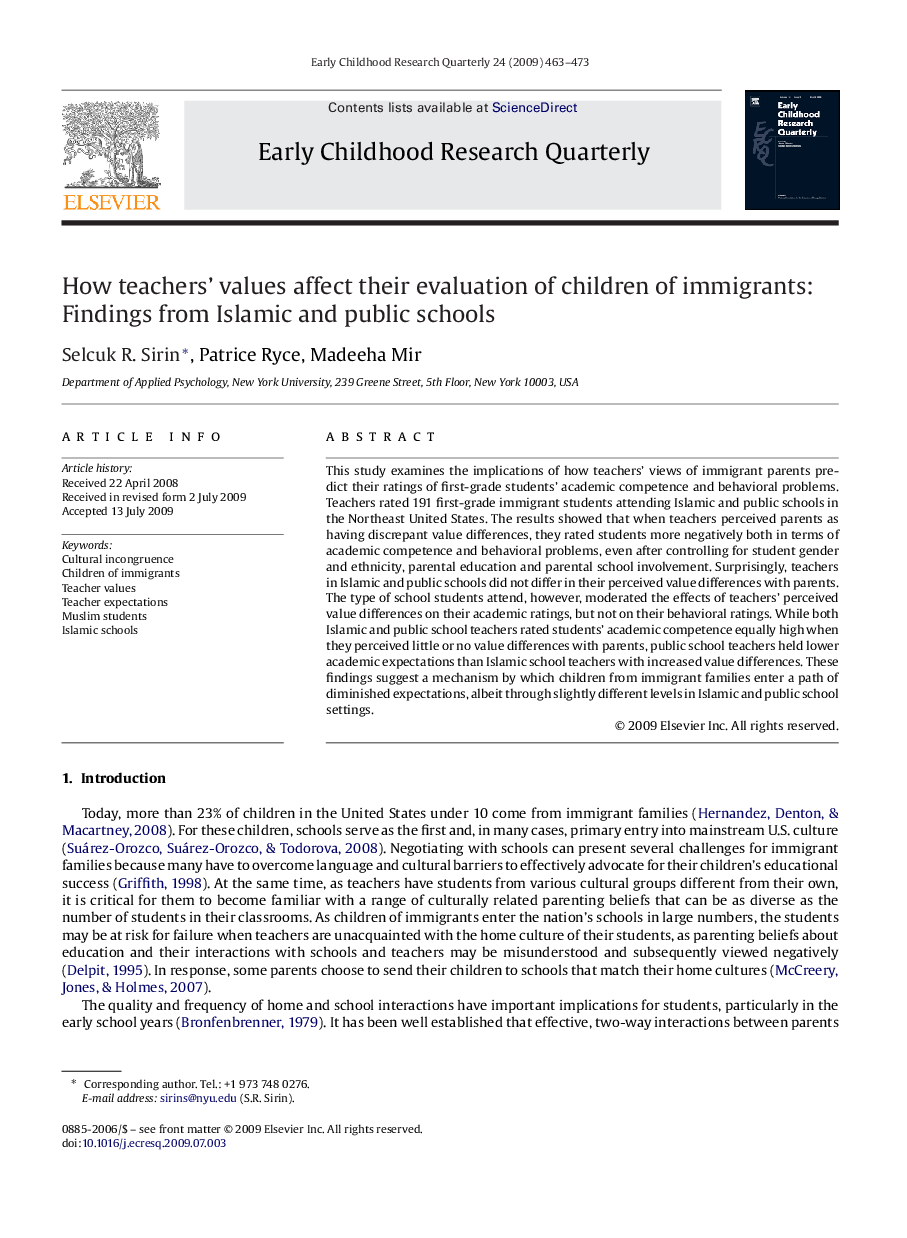| Article ID | Journal | Published Year | Pages | File Type |
|---|---|---|---|---|
| 354211 | Early Childhood Research Quarterly | 2009 | 11 Pages |
This study examines the implications of how teachers’ views of immigrant parents predict their ratings of first-grade students’ academic competence and behavioral problems. Teachers rated 191 first-grade immigrant students attending Islamic and public schools in the Northeast United States. The results showed that when teachers perceived parents as having discrepant value differences, they rated students more negatively both in terms of academic competence and behavioral problems, even after controlling for student gender and ethnicity, parental education and parental school involvement. Surprisingly, teachers in Islamic and public schools did not differ in their perceived value differences with parents. The type of school students attend, however, moderated the effects of teachers’ perceived value differences on their academic ratings, but not on their behavioral ratings. While both Islamic and public school teachers rated students’ academic competence equally high when they perceived little or no value differences with parents, public school teachers held lower academic expectations than Islamic school teachers with increased value differences. These findings suggest a mechanism by which children from immigrant families enter a path of diminished expectations, albeit through slightly different levels in Islamic and public school settings.
